Welcome to JHD Nutrasource!
Shop
Showing 100–106 of 106 results
-

Vitamin D2 Powder
Vitamin D2 Powder, or ergocalciferol, is a fat-soluble secosteroid derived from the UV irradiation of ergosterol in plants and fungi. It appears as a white, odorless crystalline powder with low water solubility (0.02 g/L at 25°C) but high solubility in organic solvents like chloroform and ethanol. The molecular formula is C₂₈H₄₄O, molecular weight 396.65 g/mol, featuring a broken steroid ring (between carbons 9 and 10) formed by UV-induced photolysis. Stable under cool, dry conditions, it degrades when exposed to light or heat, forming inactive isomers like tachysterol. <table> <tbody> <tr> <td width="308">Product Name</td> <td width="401">Vitamin D2 Powder</td> </tr> <tr> <td width="308">Appearance</td> <td width="401">White Powder</td> </tr> <tr> <td width="308">Specification</td> <td width="401">100,000IU/g</td> </tr> <tr> <td width="308">Test Method</td> <td width="401">HPLC</td> </tr> <tr> <td width="308">CAS No</td> <td width="401">50-14-6</td> </tr> <tr> <td width="308">MF</td> <td width="401">C28H44O</td> </tr> <tr> <td width="308">Certificate</td> <td width="401">ISO/cGMP/KOSHER/HALAL/USDA ORGANIC</td> </tr> </tbody> </table>
-
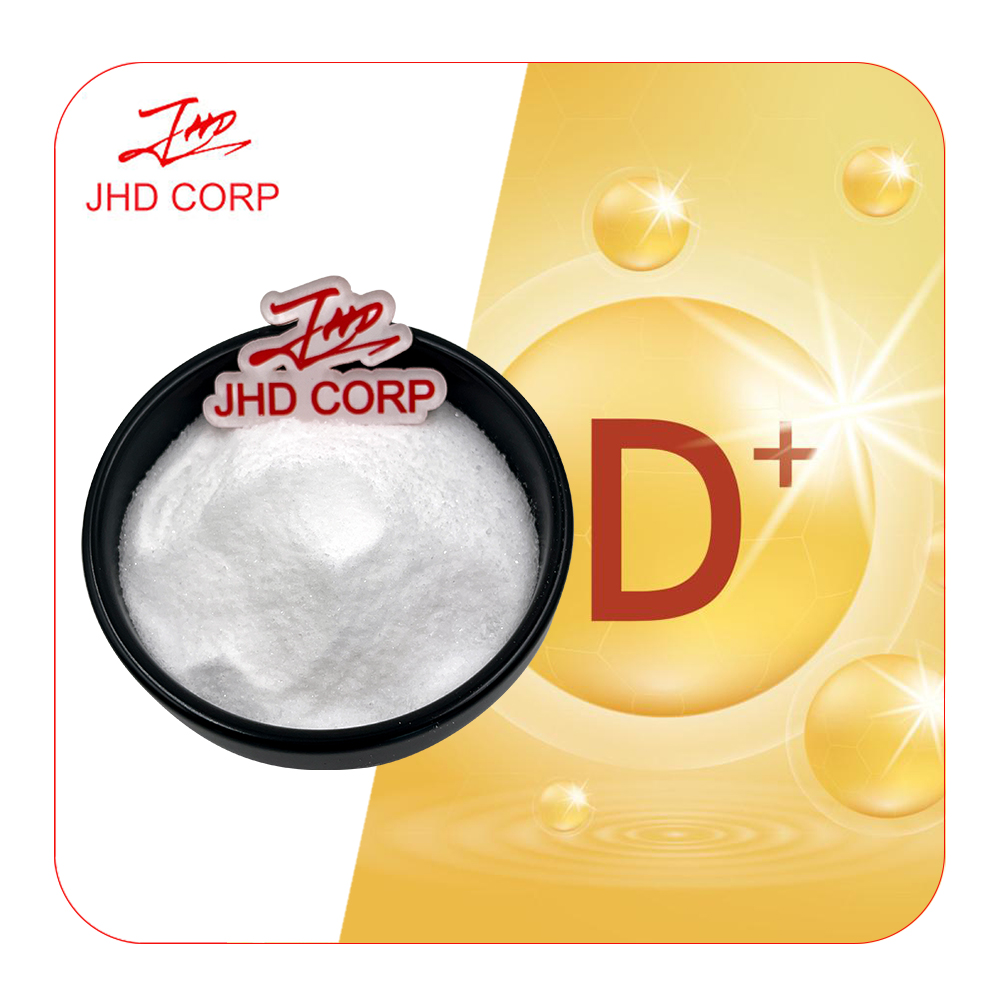
Vitamin d3 k2 Cholecalciferol crystal
Vitamin D3 K2 Cholecalciferol crystal is a combination of two fat-soluble vitamins: Vitamin D3 (cholecalciferol) and Vitamin K2 (menaquinone). Vitamin D3 is a prohormone that helps regulate calcium and phosphorus absorption, while Vitamin K2 ensures proper calcium distribution in the body.
-
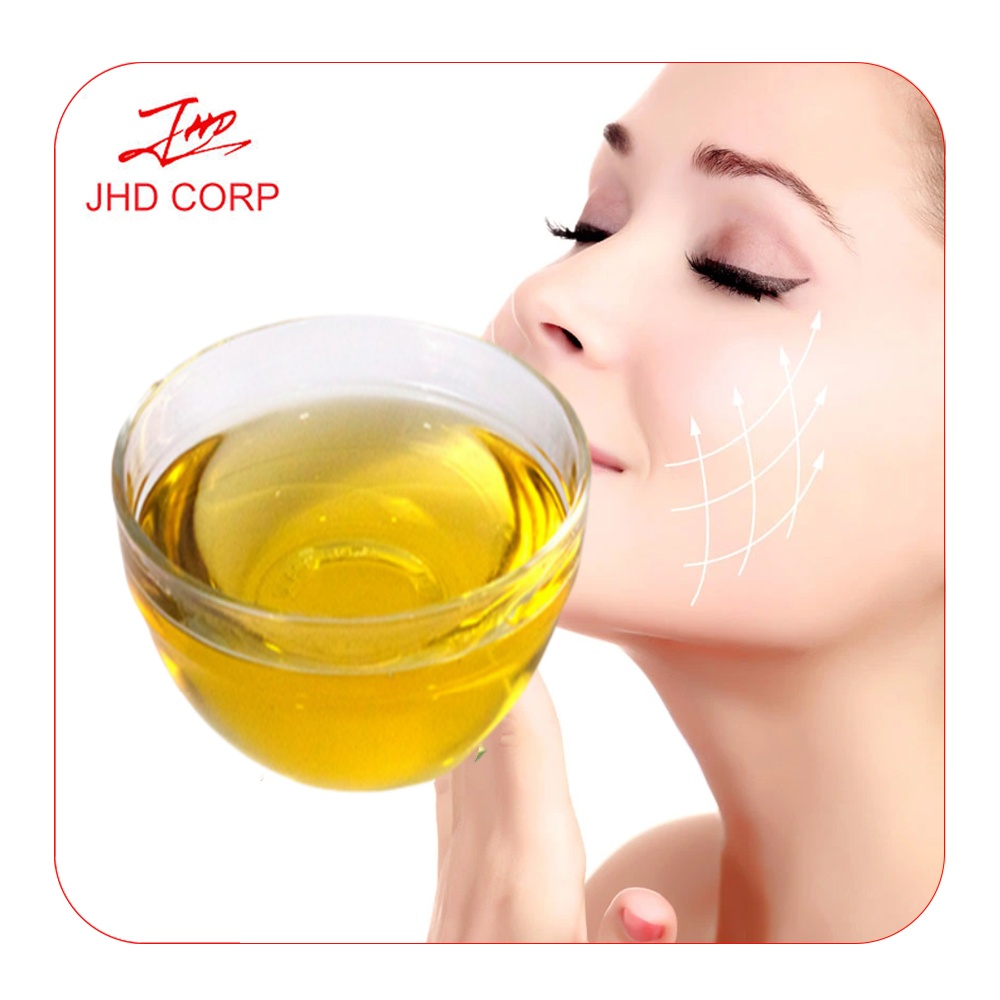
Vitamin E oil Tocopherol
Vitamin E oil, specifically tocopherol, is a fat-soluble vitamin and a powerful antioxidant. It is naturally found in vegetable oils, nuts, seeds, and green leafy vegetables. Tocopherol is known for its ability to protect cells from oxidative damage and is widely used in both dietary supplements and skincare products.
-
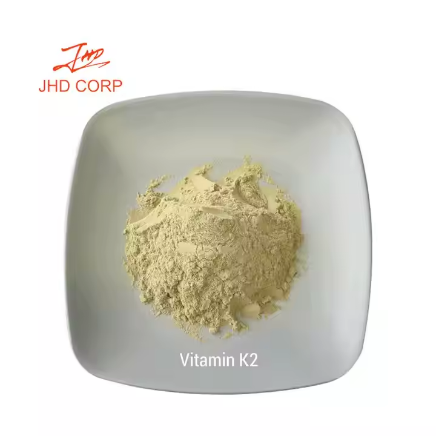
Vitamin K2(MK-7) Powder
Vitamin K2 (MK-7) Powder, also known as menaquinone-7, is a specific form of Vitamin K2 with a longer side chain that enhances its bioavailability and half-life. It is a fat-soluble vitamin primarily found in fermented foods like natto and produced by certain gut bacteria.
-
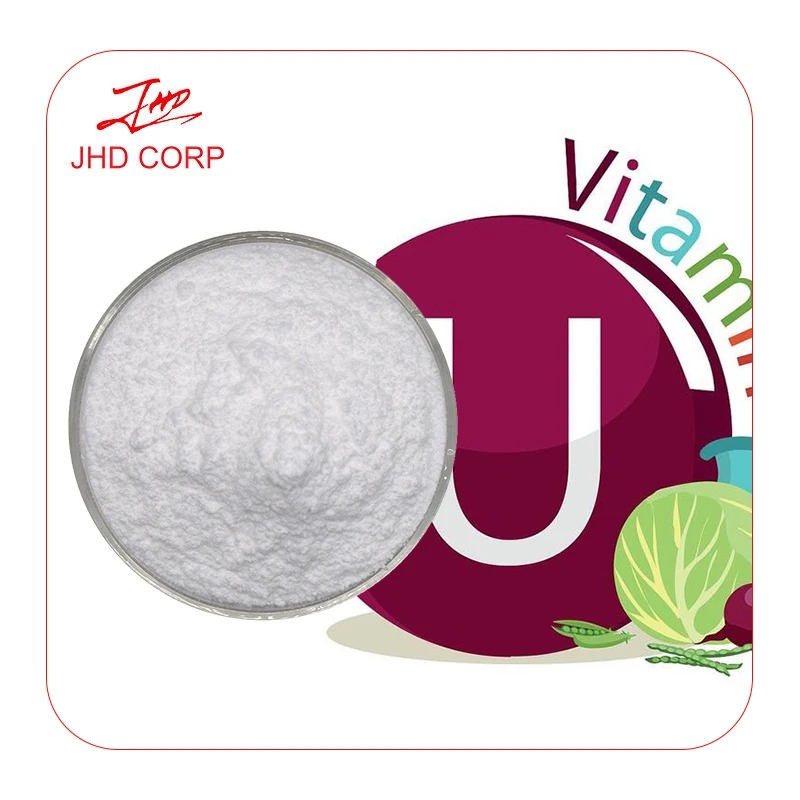
Vitamin U
Vitamin U, despite its name, is not a true vitamin but a sulfur-containing organosulfur compound identified in cabbage juice by Garnett Cheney in 1950. The most common form, S-methylmethionine sulfonium chloride (SMMS), is a white crystalline powder with a molecular formula of C6H14ClNO2S and a molecular weight of 191.67 g/mol. Highly soluble in water (50 g/100 mL at 25°C), it features a sulfonium group, making it a source of labile methyl groups for biochemical reactions. Stable under normal conditions, it is heat-resistant up to 120°C, suitable for food processing. <table> <tbody> <tr> <td width="308">Product Name</td> <td width="401">Vitamin U</td> </tr> <tr> <td width="308">Appearance</td> <td width="401">White Powder</td> </tr> <tr> <td width="308">Specification</td> <td width="401">98%</td> </tr> <tr> <td width="308">Test Method</td> <td width="401">HPLC</td> </tr> <tr> <td width="308">CAS No</td> <td width="401">3493-12-7</td> </tr> <tr> <td width="308">MF</td> <td width="401">C6H14ClNO2S</td> </tr> <tr> <td width="308">Certificate</td> <td width="401">ISO/cGMP/KOSHER/HALAL/USDA ORGANIC</td> </tr> </tbody> </table>
-
Zinc glycinate
Zinc glycinate is a chelated compound formed by the reaction of zinc ions with glycine, an amino acid. It appears as a white to off-white powder, with high stability and good water solubility. The chelation process enhances the bioavailability of zinc, making it more easily absorbed by the body compared to inorganic zinc salts. This property, combined with its low potential for gastrointestinal irritation, makes zinc glycinate a preferred form of zinc supplementation.
-
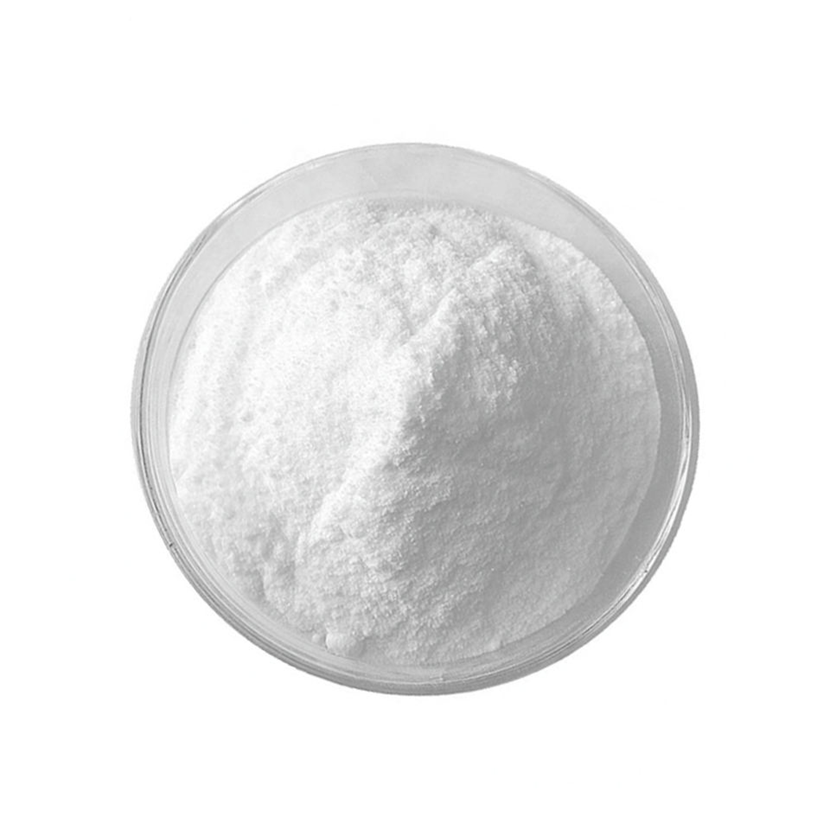
Zinc methionine sulfate
Zinc Methionine Sulfate is a form of zinc, an essential mineral that plays a crucial role in various biological processes. It is known for its potential benefits in supporting immune function, skin health, and overall well-being. Zinc Methionine Sulfate is a highly bioavailable form of zinc that is easily absorbed by the body.
